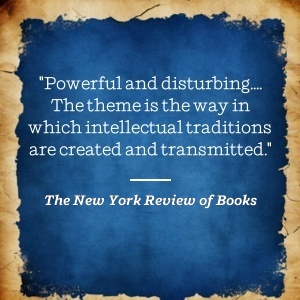Customer Services
Copyright © 2025 Desertcart Holdings Limited


Orientalism



P**N
A great Book
I will highly recommend this book to anyone interested in Oriental Studies
G**O
Eye-opening
It's a great book but a very complicated one, there are a lot of referrences to other authors that can be hard to follow, but in general the idea that Said communicates during the read becomes very clear and has made me question my point of view in a lot of ideas I had.
G**G
A staple for any thinker today
Said’s Orientalism is a staple that bridges the gap between several discourses and academic studies including Post-colonial studies, Cultural Theory, Critical Theory, Literary Theory, and countless others. Paradoxically, however, Said’s main criticism is aimed at such cemented academic fields, epitomized by Orientalism, the field aimed at studying the Orient from a Western perspective. Said’s underlying question is stated near the end of the book (~p.300): “How can we come to understand other cultures?” This seemingly simple question proliferates a very dangerous assumption: that culture stands out there as some pre-social object waiting to be apprehended by the rational subject (namely, the Westerner). As Said shows, and in a way he explicitly states as being indebted to Foucault, that culture is constructed principally through the discursive operations of a particular subject. To *be* an Oriental is to embody certain assumptions which become proliferated by a discourse (Orientalism) whose construction is such that it is essentially unfalsifiable. As Said aptly points out, the Oriental (a term we stray from using today for its obviously racist undertones which Said carefully traces across modern history and in the history of colonialism) is put into a position where he is to embody contradictory qualities simultaneously such that his identity is always one of negativity, an instrumental object for the purposes of the Westerner’s use: lacking in rationality yet containing the birth of our modern sciences and religious traditions, disorganized yet forming vast networks of control (apropos the Caliphate), static and forever solidified as a continuous identity that can be understood whilst simultaneously being unwieldy and schizophrenic in their diversity. All of these are used to back the Oriental into a corner such that he is merely a tool which can be utilized by the Westerner.I think many of those who are keen on criticizing Said as “painting with too broad of strokes” (such was another review here on Amazon claiming that he was too harsh on Bernard Lewis’ appraisal of Arabic philologically) have not fully understood his project, which is that if we trace Orientalism back, understanding it as a *discourse* (in the Foucaultian sense), we are able to extrapolate certain recurring themes that identify why it seems that Orientals can always somehow appear as racist stereotypes — it is precisely because their image through Western blinders has manufactured the Oriental’s inevitability viz the image.All being said, this is an indispensable text for Post-colonial studies, as well as being instrumental for studies of literary theory, critical theory, and certain strands of poststructuralist/postmodern thought (Foucault, Derrida, even Deleuze). It ready fairly fast and, although it is slow at certain points when he starts to sound like a broken record, his prose is fairly consistent in being engaging and effectively communicating his desired point. An important positive that makes this book more accessible than other Post-colonial material is that it is not very theoretically dense as opposed to someone like Homi Bhabha. Instead, Said opts for a more historically vast characterization of the problem that still provides the same theoretical points whilst allowing the complexity of his point — that identity is not latent within objects and existing pre-socially, instead existing only within a discourse build on implicit power-imbalances — to shine through to those who may not want or be ready for a text of more abstract a nature. All and all, this is a great text that, even as a slow reader, was finished quickly and was extremely enjoyable and valuable, opening up a new area of study in a way that allows one to access a whole new problematic that may have previously appeared only as invisibility.
L**N
Great
Great. A splendid work of research
船**長
向き合う価値は今も十分にあり
かつて勝ち誇るように「オリエンタリスト(東洋専門家)」を名乗っていた者たちは、この書物の与えた衝撃に耐えられず、まるで底に穴の空いた船から鼠の大群が逃げ出すように、一斉に名刺を処分して散り散りに身を潜めた。学生時代に『知識人とは何か』『ペンと剣』『イスラム報道』『冬の精神』を読み、今年の二月から四月にかけて『Culture and Imperialism』を読んだ。そして今夜『Orientalism』を読み終えた。本書こそは著者の代名詞とされる主著だが、私が読む順序は逆になった。『Culture and Imperialism』では、既読であることが前提とされる作品(Dickens『Great Expectations』、Conrad『Heart of Darkness』、カミュ『異邦人』、デフォー『ロビンソン・クルーソー』など)を入れ子的に読み通したため、すべてを読み終えるのに2ヶ月かかった。本書にも事前に読んでおくべき複数の書物が存在する(フローベール『ブヴァールとペキュシェ』『聖アントワーヌの誘惑』、ネルヴァル『東方紀行』『オーレリア』など)が、すでにそれらはある程度読んでいたので前回よりは紆余曲折なく進んだ。サイードのオリエンタリズム論の骨子とは、1. 自らのアイデンティティを確立・確認するために他者としての東方(オリエント)を必要としてきた西方(オクシンデント)の歴史性、2. そうした東方のイメージ=表象(representation)を恣意的に操作する政治性、及びそのような操作を可能とする権力性への批判、3. そしてこうした非対称的な枠組の中で政治的な表象の強化と再生産に与してきた西洋文学への批判である。ただしサイードの議論が中近東、つまりアラブ世界に集中していることには注意が必要である。インド、中国、ポリネシア、そしてとりわけ日本を含む極東への言及は著しく制限されている。にもかかわらず、これらの「影絵」のなかで「日本の影」だけ特異な存在感をもって、それが全く語られることのないテクストの背後から、その気配が伝わってくるのはなぜか。本書のオリエンタリズム論は、日本という国を考慮に入れると、すべての構成が狂う。植民地化を経ずして開国し、西洋文明を導入しながらヨーロッパ文化に対しても直接的な影響を与え、列強との総力戦を非西洋国家として唯一対等以上に戦った(アラブ世界にとって日露戦争での日本勝利がいかに巨大な衝撃であったかは、サイードの師イクバール・アフマドも語っている)、オリエント最果ての国。サイードが強調する「オリエンタリズム」の諸要素から逸脱する日本は、基礎数学における多様体にとっての特異点のようなもので、それを含めようとすると理論が複雑にならざるを得ない。ゆえに本書は、オリエンタリズムの全体像のうち中近東までの断面像を論じたものと捉えた方がいい。それが極東のオリエンタリズムとしばしば一致しないのは、議論の本質的な欠陥というよりは、地域間の性格的な違いとして理解するべきだろうか。出版から16年後に書かれた後記で、サイード自身その差異を認めていた。Nor is there much similarity between what obtains among Western experts in Sinology and Indology and the fact that many professional scholars of Islam in Europe and the United States spend their lives studying the subject, yet still find it an impossible religion and culture to like, much less admire. p.344(西洋の中国学やインド学の専門家らのなかで定着しているものと、ヨーロッパや米国の職業的イスラム学者の多くが生涯に渡って自身の主題を研究しながら、依然としてその宗教と文化を到底好めない、まして尊敬することなど不可能なものとして捉えている事実とのあいだには、かなりのかけ離れがある。)サイードは、オリエンタリズムが形成される過程において文献学 philology が果たした役割の大きさを論証している。そこからずっと離れたところに、こんなことが書いてあった。The American experience of the Orient prior to that exceptional moment was limited. Cultural isolatos like Melville were interested in it p.290(その異例の機会 [訳注:第2次世界大戦末期以降の、中近東における英仏プレゼンスの消失] が巡ってくるまで、アメリカ人にとってのオリエント経験は限られていた。メルヴィルのような文化的孤立者たちの関心を引いてはいたが)18歳のメルヴィルが地元青年会で前会長と公開論争を行ったとき、彼が署名に”Philologian(文献学者)”と書いたことは、サイードも知らなかったかも知れない。『Culture and Imperialisim』を私は戦闘的な本だと感じたが、サイードは『Orientalism』もまたゲリラなのだと書いている。『知識人とは何か』は、この自問からこそ生まれたに違いない。Orientalism is a partisan book, not a theoretical machine. p.339(『オリエンタリズム』はパルチザンの書であって、理論の機械ではない。)What is the role of the intellectual? Is he there to validate the culture and state of which he is a part? What importance must he give to an independent critical consciousness, an oppositional critical consciousness? p.326(知識人の役割とは何か? 自分がその一部を成す文化や状況を正当化するために、彼はそこに居るのか? 一個の独立した批判精神、反抗的な批判精神というものを、彼はどれほど重視すべきだろうか?)サイードと言えば、とかく文学研究者から「読書の楽しみに水を差した男」と煙たがられ、もっぱら「サイード的な批判もあまりに繰り返されれば不毛になる」といった愚痴あるいは控訴棄却の文脈でばかり言及される存在となりつつあるが、そうした風潮に初めから流されるべきではない。個人的に向き合ってみるだけの価値が、この書物にはある。これが時代遅れの障害物か、今なお手に取るべき武器であるか、すべてはあなた次第。
Trustpilot
3 weeks ago
1 month ago